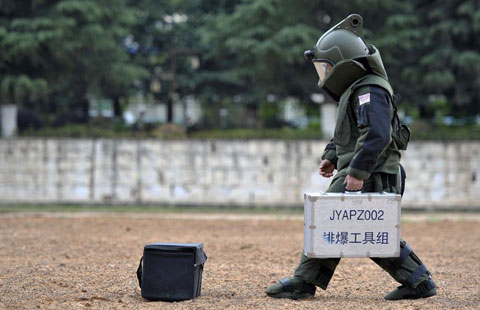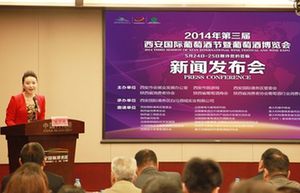Easing up on English
By Peng Yining, He Na and Wang Shanshan in Beijing ( China Daily ) Updated: 2013-10-24 07:33:35Strong competition
Peter said schools able to prove to parents that they provide value in several areas - developing character and independence, promoting a love of learning, engaging with, and being interested in, the opinions of others - should have nothing to worry about.
"Or perhaps I should say, less to worry about - the environment here in Beijing is very competitive, and there are a lot of challenges. However, any moves that lead to better-quality programs for learners and their families are moves in the right direction," he said.
Zhang Hong, director of the Golden Cradle Kindergarten, a Beijing-headquartered bilingual kindergarten chain, said society places too much emphasis on English skills, and that the impact of the gaokao is obvious even at the preschool level.
"Many organizations in Beijing provide English classes as a way of attracting the parents," she said. "But we insist that Chinese comes first, despite our focus on bilingual education, so the new policy won't change our syllabus."
Li Wenjun, a senior English teacher from Harbin in Heilongjiang province, said students are tested on so many linguistic technicalities in the English exams that they lose track of the key things they should master, especially crucial skills, such as reading.
"In light of the reality of the English-learning environment in China, it would be better for students to put their skills into practice by using learning materials in English, searching for useful information online, and things like that," she said. "Those are the most important techniques students should master; things that will help them to communicate in the real world, when they are admitted to colleges or universities."
One teacher at The High School Affiliated to Renmin University of China said the new policy might ease some of the pressure on English teachers in high schools.
"With less pressure from the gaokao, I could use a more practical method of teaching English, rather than getting bogged down in details such as the difference between 'which' and 'that'," said the teacher, who declined to be named.
Chu Zhaohui, a senior education researcher at the National Institute for Educational Sciences, said the proposed changes are intended to shift the focus of English-language education, from being test-oriented to practical use, but that doesn't necessarily mean that the language is less important.
Shifting the focus
Given that the total mark for Chinese would rise at the same time that the mark for English would fall, Chu said the policy may be an indication that the authorities are keen on shifting the focus from English to traditional Chinese culture.
"The importance of Chinese has been overlooked in recent years, while English is a boom area in the education market," he said. "However, we should not go to the other extreme."
Hu Hongyang believes the policy has been formulated in response to a growing belief that parents and schools pay too much attention to English-language education, and that bias has resulted in Chinese language studies being neglected.
There is also a theory that an overemphasis on English favors children from the cities because they have access to better resources, and this could become a cause of inequality, according to Hu.
"There's nothing wrong with placing greater value on the Chinese language and traditions, but the two languages and cultures don't have to be in competition. It's important that people gain an understanding of different cultures and a perception of a highly diverse world at a young age. This is the population China badly needs in the era of globalization," she said.
Hu suggested that if the government wants to encourage students to spend more time studying Chinese, more marks should be available for the Chinese element of the entrance exam, but that shouldn't automatically mean that the number of marks for English must be reduced.
As if to prove that languages need not compete, on Oct 18, English-language students from Hangzhou Foreign Language School took first prize in the finals of The Chinese Character Writing Contest, a primetime program on China Central Television that regularly attracted audiences of 660 million. A team representing Nanjing Foreign Language School also competed in the finals.
Bryson Miller, a teacher at Harbin University in the capital city of Heilongjiang province, said he thought it strange that the bar for English could be lowered while marks were added for other subjects.
The US national believes that English is playing an increasingly important role in helping China communicate with the rest of the world. Gaining a good grasp of a foreign language is very useful in helping people to better understand the world and broadening their intellectual horizons. English is becoming increasing important in an age of increasing contact between China and the rest of the world, he said.
"Take my experience, for example," he said. "I've learned some Chinese and can have a basic conversation with local people. I found the language really useful and that makes living in China easier. What's more, it gives me a deeper understanding of the Chinese people and the country."
Zhang Yuchen and Tang Yue contributed to this story.
|
|
|
|
|
|
|
|


















 Op Rana
Op Rana Berlin Fang
Berlin Fang Zhu Yuan
Zhu Yuan Huang Xiangyang
Huang Xiangyang Chen Weihua
Chen Weihua Liu Shinan
Liu Shinan